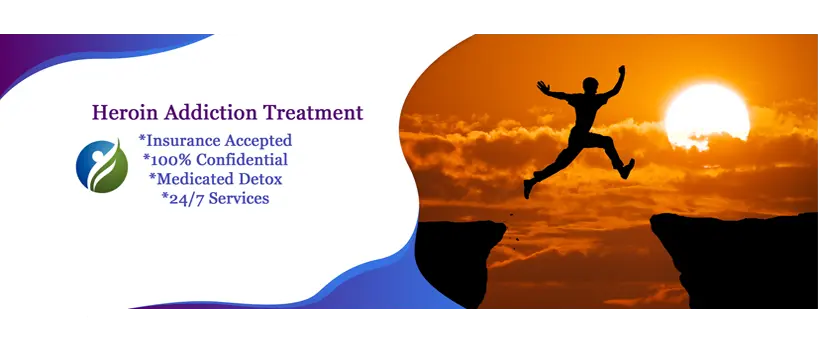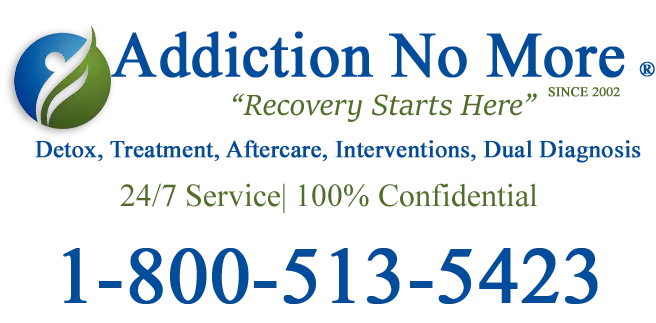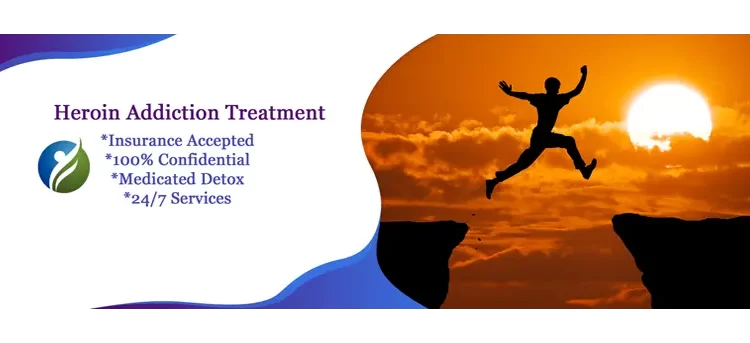Heroin Addiction Treatment Programs in Connecticut
Please contact us by phone for immediate assistance. This is a necessary step in beginning the recovery process for yourself or a loved one. Our addiction treatment specialists and staff have over 25 years of experience in helping people find effective and affordable treatment for all addictions. What you tell us is completely confidential. We are HIPAA compliant. We are here to answer your questions and to get you (or a loved one) into treatment today. For immediate intake, call us now.
1-800-513-5423
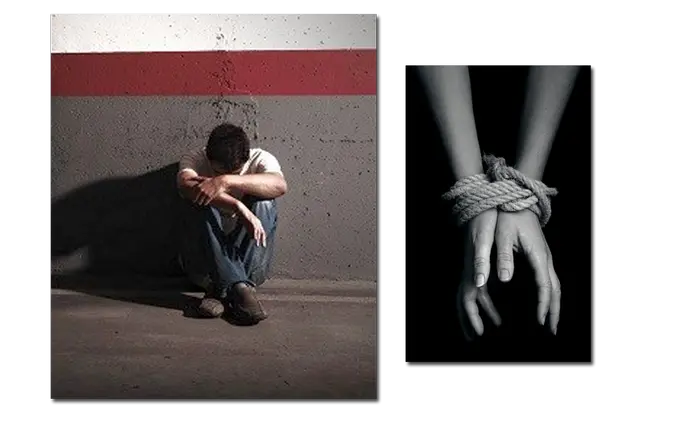
Types Of Heroin Treatment Programs
DETOX: Heroin addiction can sometimes include other drugs so it is very important to make sure that you disclose all of the drugs you are currently taking and have taken in the past 6 months. This will help the detox center better diagnose and prescribe the best medications to make your detox go smoothly and as pain-free as possible. Do not try to detox on your own. Heroin withdrawal can last anywhere from a few days to a few weeks, depending on the length of heroin use, and the amount of heroin being abused on a daily basis.
Inpatient rehabs: Detox should be followed by an extensive stay, at a heroin inpatient treatment program. Most of the people who have fought heroin addiction have one thing in common: They recovered from their addiction at an inpatient heroin rehab center. Some people can find sobriety in an outpatient treatment program but due to the temptations and availability to go find heroin, this type of program is less effective in treating the addiction as a whole. The typical stay for someone recovering from heroin addiction can vary from center to center and usually consists of 30-90-day programs.
Private Inpatient drug rehabs offer the best results for long-lasting sobriety from Heroin addiction. The best treatment facilities for heroin will offer different types of treatment models and detox options for the person who is suffering from the adverse effects of heroin.
Court-ordered treatment: There are many Drug Rehab Facilities that accept criminal justice clients and people with open court cases as an alternative to jail. County and state courts will often suggest treatment in place of jail time for some first-time offender cases.
State-funded heroin treatment programs: Connecticut has set aside some resources for the treatment of heroin addiction. Please call our specialists to find out if you qualify for these state-funded rehab programs that are offered in Connecticut.

Find Drug Rehabs Near Me
We can help you locate treatment for addiction in your area or anywhere in the country. To locate AA meetings, group meetings, 12-step programs, inpatient treatment, or outpatient services in your town give us a call. There are many options for drug rehab services in many cities in Connecticut.1-800-513-5423
Bridgeport Connecticut Drug Rehabs
Danbury CT Addiction Treatment
Hartford Connecticut Drug & Alcohol Rehabilitation
New Britain CT Drug Rehab Centers
New Haven Connecticut Drug Treatment Facilities
Norwalk Connecticut Substance Abuse Treatment
Stamford CT Inpatient Drug Rehab Services
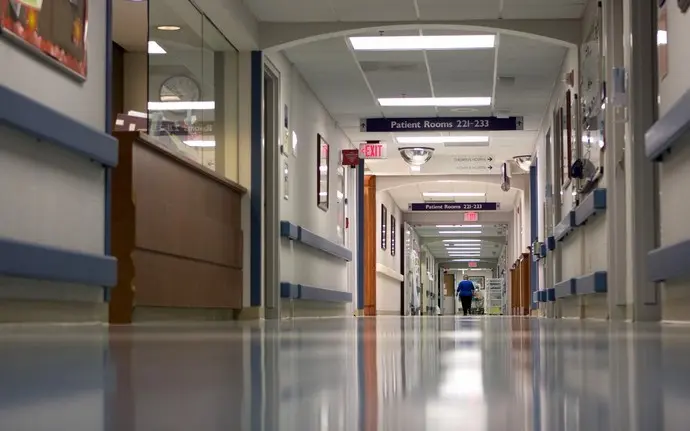
Heroin Addiction Medications and Uses
*To locate a doctor who can prescribe medications for a painless withdrawal, please give us a call and we will help you find the closest addiction doctor to you in Connecticut.
1-800-513-5423

Addiction Stats for the State of Connecticut
There have been many recent reports that heroin has become less expensive than it has been in years. This price shift in Connecticut has caused heroin to become a cheaper alternative for people who have developed an addiction to opioids in the form of pharmaceuticals. Due to the short supply of pharmaceutical drugs, heroin has become an inexpensive way to keep from going through the painful withdrawal symptoms from prescription medications.Prescription pain pills can often be overprescribed to patients who realize that they have become dependent on the drug. With recent crackdowns in Connecticut on opioid abuse, there has been a huge resurgence of heroin-addicted people in Connecticut. Adding to the problem is the fact that heroin is often times cut with Fentanyl (used for pain relief for end-stage cancer patients) and the potency can vary, leading to elevated heroin overdose deaths in Connecticut.
Connecticut has a real problem with heroin addiction and abuse. Heroin-related deaths have increased 27 percent and deaths related to Fentanyl have increased by a staggering 148% according to the Chief Medical Examiner, James Gill. Fentanyl is often mixed with heroin as a cheap alternative to increasing the potency of street heroin. The dangerous heroin cocktail has detectable amounts of acetyl-fentanyl, a designer form of Fentanyl, known to be made and distributed through the Mexican cartels. This new designer Fentanyl is 30-50 times more potent than heroin and 50-100 times more potent than Morphine.
Heroin addiction rates and fatal overdose rates have been skyrocketing out of control for the last 3 years the latest numbers that are available are from the year 2015. 723 people in the state of Connecticut died in 2017 from fatal drug overdoses of those 723 deaths 415 were heroin-related 107 were attributed to fentanyl the rest were cocaine, morphine, and other drugs. These numbers are staggering if you look back just a few short years to 2012 when the heroin-related deaths totaled 86 for the year and 1 overdose of heroin and Fentanyl. The overall drug-related deaths in Connecticut have risen significantly from 357 in 2012 to 723 in 2015. Most people attribute Heroin addiction to it being an urban drug problem, heroin can be found in urban areas and suburban areas and has become a state-wide problem at almost epidemic proportions.
read the entire study HERE
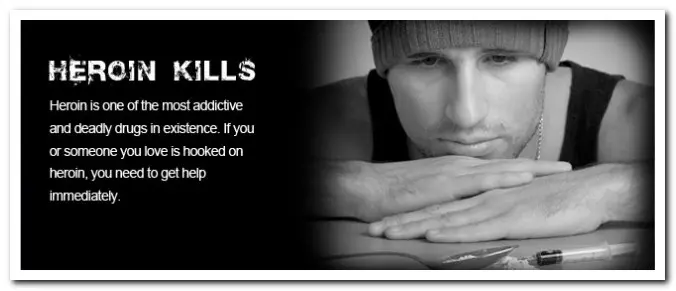
Get Help for Heroin Addiction NOW
If you are seeking a free or sliding fee scale program, we have some resources listed below for treatment in some of the more populated cities in Connecticut. Due to some overcrowding in the jails, there may be a bit of a wait for some treatment centers, due to the deferred prosecution clients coming from the criminal justice system. We can help you enter a free rehab center today. Call us now to discuss your treatment options.1-800-513-5423
Southeastern Council on Alcohol and Drug Dependency (SCADD)SCADD operates a government-funded treatment program for opioid detox and treatment in New London, Connecticut. The program operates a hospital inpatient treatment center for opiate, opioid, and prescription medication abuse.
47 Coit St
New London, Connecticut
US Department of Veterans Affairs
The VA of Connecticut has a medication-assisted detoxification program for prescription medication abuse. Buprenorphine is used for detox and treatment. This program also takes adolescents.
555 Willard Ave Ste 116-A
Newington, Connecticut
Johnson Memorial Hospital Treatment Program for Opioid Addiction
The Johnson Memorial Hospital offers a pain-free detox program through its cutting-edge detoxification facility at the hospital. Most forms of insurance to cover treatment are accepted, and co-payments are expected at the time of service.
201 Chestnut Hill Rd
Stanford Spring, Connecticut
The ARC (Addiction Recovery Center)
The ARK offers multiple different treatment models to be able to offer a well-rounded curriculum for those suffering from opioid and painkiller dependency. This is a private facility that accepts most kinds of insurance or private pay. Hospital inpatient Detox using Suboxone is available for those needing to detox from their pain medications in Connecticut in a private detox facility.
5 Perry Ridge Rd
Greenwich, Connecticut

